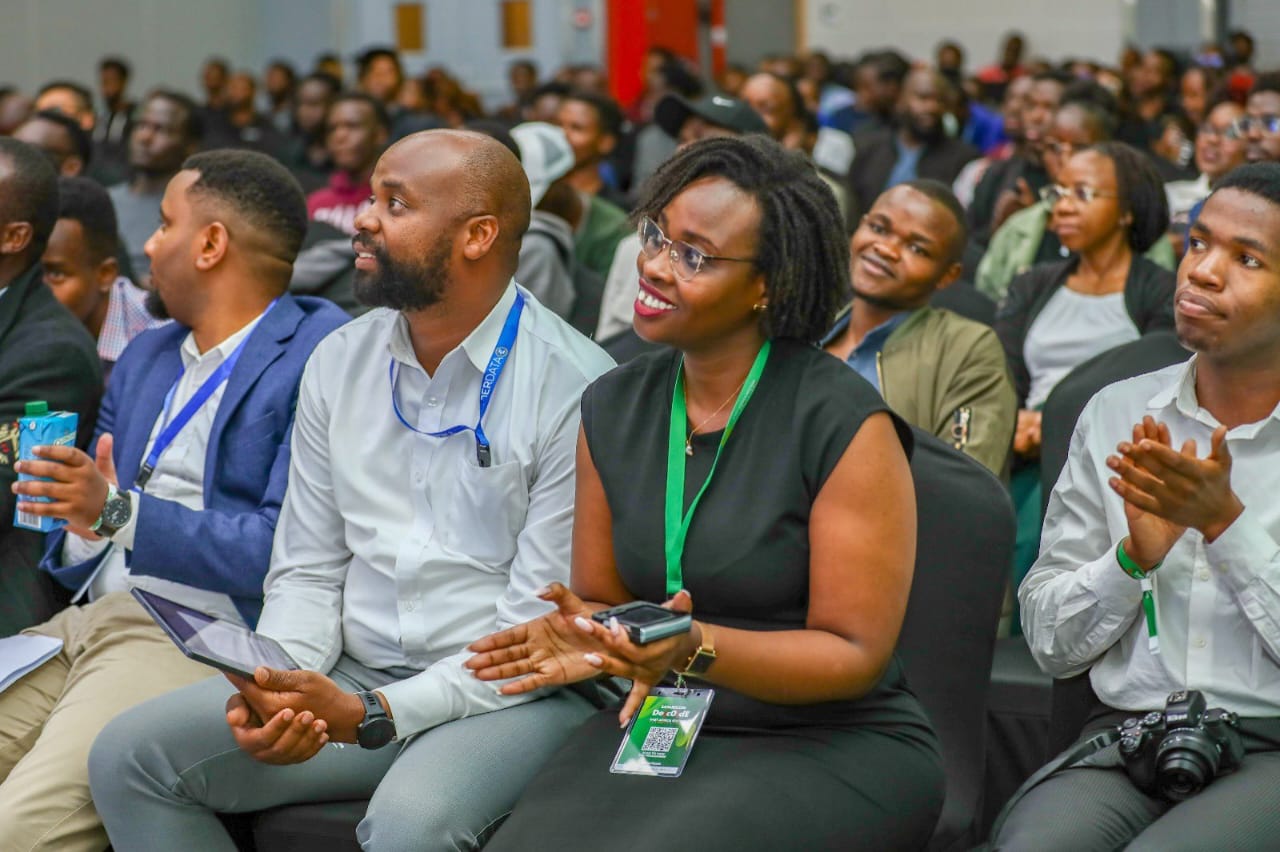

Safaricom held a three-day Engineering Summit from March 18 to 20, 2025 dubbed Decode.
The three-day summit provided a platform for young engineers, scientists, tech enthusiasts, innovators and stakeholders to engage in discussions and envision the future of engineering together.
Under the theme "Charting East Africa’s Digital Destiny,” the event championed young innovators' role in transforming Kenya's engineering landscape through innovation, inclusivity, and sustainability.
Safaricom CEO Peter Ndegwa, who flagged off the 2025 Engineering Summit, said engineers have been provided with a dynamic platform to showcase their technical prowess and connect with the broader tech community.
He said it is a testament to Safaricom’s commitment to being the technology partner of choice for young innovators on the digital landscape.
One of the summit participants, Phenny Mwaisaka, a student from Meru University pursuing mathematics and computer science, said the summit renewed her spirits to advance her engineering course.
According to her, interacting with people from the technology space was an inspiration and a learning experience.
“I decided to give computer science a chance, and I loved it. Look where I am today. This will be the beginning of a great journey. Currently, I use Java Spring Boot. I do backend development using Spring Boot,” she said.
For Ian Mongare, a student at the Dedan Kimathi University of Technology pursuing mechanical engineering, his passion for technology was renewed from the insightful conversations held.
“I got someone who encouraged me to pursue technology; it was hard at first, but I got to interact and share with people who boosted my confidence and love for technology.”
The summit was divided into sessions in the main arena, water arena, earth arena, fire arena and air arena.
There were discussions on the shift and trends in Africa’s investment landscape, career, evolving workforce, and many more.
During the summit, there were panel discussions held at the different arenas with experts, business leaders responding to questions from students.
Some of the panel discussions included Evolving Workforce: Transforming industries with diverse perspectives, surviving the funding squeeze, and building for profitability, among many others.
Through the discussions, the participants learned from African founders who've successfully navigated market challenges unique to the continent and are working towards building a sustainable revenue model and achieving profitability despite infrastructure and capital constraints.
The panel discussions also focused on the crucial role of diversity in shaping the future workforce across East Africa.
They inspired participants by showcasing successful initiatives promoting diversity and inclusion, ultimately transforming industries and contributing to sustainable economic development across East Africa.
Participants were taken through talks on mobile gaming and the youth’s potential in shaping Africa’s economic landscape.
Safaricom’s Chief Consumer Business Officer Fawzia Ali said mobile gaming isn’t just a pastime but a movement shaping digital engagement and driving innovation.
She said over 500 million mobile phone users in Africa have the opportunity to connect through gaming.
“From casual games to esports, we’re powering the next generation of entertainment through strategic partnerships, cutting-edge infrastructure, and seamless access to gaming,” she said.
“The future of gaming in East Africa is here. Customers who engage with gaming and other digital content consume over 10GB of data per month, more than double the average user. Gaming isn’t just about fun; it’s driving data usage, retention, and new revenue streams.”
Safaricom’s Director Customer Obsession Lucille Aveva said Africa’s youth hold the key to shaping the continent’s economic future, but significant barriers like unemployment, skill gaps, and limited access to education and resources must be addressed.
She said overcoming the challenges starts with investing in capacity building through STEM education, digital literacy, and vocational training to equip young people with the skills needed to drive innovation and growth.
Aveva said access to funding, mentorship, and support systems is critical to help bring ideas to life and create a meaningful impact.













